How the EU-Turkey Deal came to be
Following the migration crisis of 2015, during which, according to the International Organisation for Migration (IOM), more than one million migrants1 crossed borders into the EU, mostly by sea via Turkey to the Greek Islands, the European Union needed a quick and coordinated response to the situation. Overwhelmed by the sudden high influx of refugees, the EU negotiated a deal with Turkey, its most immediate neighbour. The motive and primary agenda was to curb migration from the Middle East to the EU.
After two meetings, held between November 2015 and March 2016 to deepen EU-Turkey relations and address the migration crisis, Turkey and the EU signed an agreement during their third meeting on 18 March 2016, which was supposed to curb irregular migration from Turkey into the EU through Greece. The EU-Turkey Statement stated that, as of 20 March, all irregular migrants arriving on the Greek islands would be returned to Turkey, which is considered a safe third country. Furthermore, for every Syrian sent back from Greece to Turkey, another Syrian in Turkey will be resettled in the EU. Turkey was also obliged to ensure that necessary measures were taken to prevent the emergence of new sea or land routes from Turkey to the EU.
As soon as illegal border crossings stopped or at least significantly decreased, the parties agreed on the activation of a “Voluntary Humanitarian Admission Scheme”, to which member states can contribute on a voluntary basis. In return for these concessions by Turkey, the EU agreed to look into the acceleration of the visa liberation roadmap to lift visa requirements for Turkish citizens. Moreover, both parties reconfirmed their commitment to the accession process and the upgrading of the Customs Union between the two. The EU and Turkey furthermore agreed to cooperate to facilitate the disbursement of €3 billion under the Facility for refugees. The EU had also demonstrated its willingness to mobilize additional funding until the end of 2018. Lastly, but perhaps most importantly, they agreed to work together to improve the humanitarian situation in Syria.
Will the agreement hold? Recent development and concerns
Over the past years, EU-Turkey relations have already deteriorated, following the democratic backsliding since the failed military coup in 2016, the Turkish intervention in the Libyan war as well as other geopolitical issues, including gas drilling disputes in Cyprus. As a consequence, the EU reduced its financial pre-accession assistance. In addition, the European Parliament asked the Council and Commission in March 2019 to suspend accession talks with Turkey. Furthermore, after Turkish aggression and military action in north-east Syria, a region governed by the Kurdish Democratic Union Party (PYD), which is, according to Turkey, affiliated with the Kurdistan Workers’ Party (PKK), that Turkey considers a terrorist organization, the EU Parliament again called for the suspension of trade preferences and to consider suspending the EU-Turkey customs union.
Since the launch of Turkey’s military action “Operation Peace Spring” in Syria in September 2019, the relations between Turkey and the EU further deteriorated. In December 2019, as violence in Syria intensified, especially in the northwestern region of Idlib, which the Syrian president al-Assad tried to recapture together with Russian forces, Turkish president Erdogan warned that Turkey would not be able to handle another wave of Syrian refugees. Erdogan called on the EU’s to support Turkey’s actions in Syria’s northwestern province. Otherwise, the Union would feel the impact of the ongoing war. The Turkish president has already threatened various times to “open the gates” and let the refugees into the EU, thereby violating the agreement between Turkey and the EU.
When at the end of February 2020, 36 Turkish troops were killed in an airstrike carried out by Syrian government forces in the Idlib province, Turkey announced that it would no longer stop refugees to cross borders into the EU. According to President Erdogan, he “opened the doors” and added that “We will not close those doors … Why? Because the European Union should keep its promises.”
As of 2 March 2020, thousands have already headed toward the Turkish-European border, and Greece declared a state of emergency. On 3 March 2020, EU leaders visited Greece and pledged to provide support and solidarity to Greece.
At the crossroads – What the EU should learn from this
The actions taken by Turkey in the past years have indeed taken a toll on the EU-Turkish relationship. Trust in Turkey as a reliable EU partner has undoubtedly decreased. EU-Turkey relations seriously degraded and will likely continue to do so if they do not find common ground regarding military actions in Syria and the handling of refugees.
Following these developments in Syria and on the EU-Turkey border, the EU finds itself under increasing pressure to (re-)negotiate a deal with Turkey to curb migration to the EU to avoid a scenario similar to the one in 2015. The EU will have to show solidarity and provide more financial support for refugees in Turkey and Syria. Given that the EU is in a disadvantaged position in the negotiations, it will have to make concessions to Turkey. This is critical, given that they had several disagreements over the last years – regarding, for example, Turkish actions against Kurdish groups in Syria. The EU should use the current situation to position itself as a strategic power in the region.
Concerns remain that the EU will, once again, lose face in the negotiations with Turkey by trying to reach a deal to curb migration to the EU against all odds. Besides, increasing migration and repeating the situation of 2015 will further spur right-wing populism and Euroscepticism across the Union. Lastly, a revival of the controversial agreement will not solve the root causes. On the contrary, it will only temporarily ease the situation for the EU while making it subordinate to Turkey.
SourcesAlJazeera (2020): Erdogan vows to keep doors open for refugees heading to Europe, https://www.aljazeera.com/news/2020/02/erdogan-vows-doors-open-refugees-heading-europe-200229093245893.html, accessed 18.05.2020.
BBC (2015: Migrant crisis: One million enter Europe in 2015, https://www.bbc.com/news/world-europe-35158769, accessed 22.05.2020.
Euractiv (2019): Erdogan says Turkey cannot handle new migrant wave from Syria, warns Europe, https://www.euractiv.com/section/global-europe/news/erdogan-says-turkey-cannot-handle-new-migrant-wave-from-syria-warns-europe/, accessed 17.05.2020.
European Council (2016): EU-Turkey statement, 18 March 2016, https://www.consilium.europa.eu/en/press/press-releases/2016/03/18/eu-turkey-statement/, accessed 12.05.2020.
European Parliament (2019): Turkey’s military operation in Syria and its impact on relations with the EU, EPRS Briefing https://www.europarl.europa.eu/EPRS/EPRS-Briefing-642284-Turkeys-military-operation-Syria-FINAL.pdf, accessed 16.05.2020.
Europan Parliament (2020): EU-Turkey Relations in the light of the Syrian conflict and refugee crisis, EPRS Briefing https://www.europarl.europa.eu/RegData/etudes/BRIE/2020/649327/EPRS_BRI(2020)649327_EN.pdf, accessed 13.05.2020.
Stevis-Gridneff, M. &(2020): Erdogan Says, “We opened the Doors”, and Clashes Erupt as Migrants Head for Europe, The New York Times, https://www.nytimes.com/2020/02/29/world/europe/turkey-migrants-eu.html, accessed 16.05.2020.
Footnotes
- Migrant here, referring to all those leaving their home countries seeking a better life, therefore, also incorporating refugees and asylum seekers. [>]

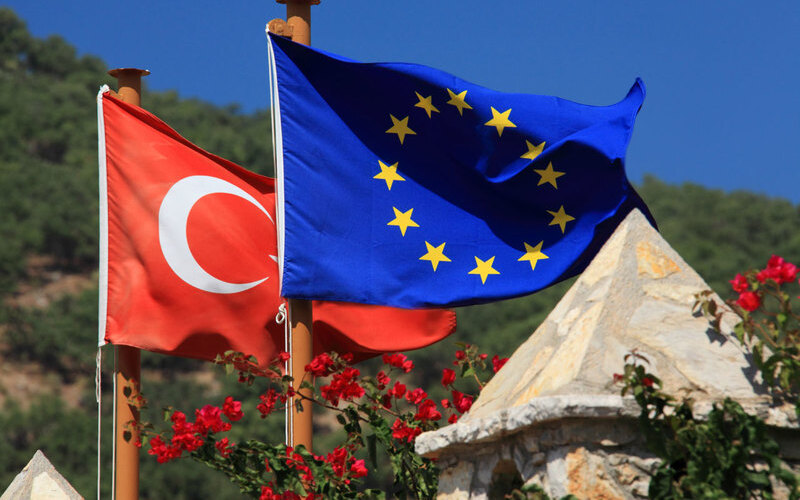
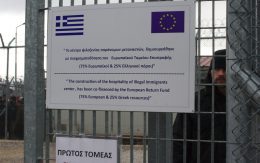

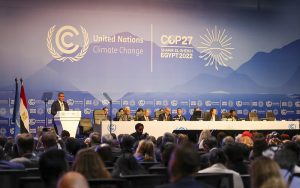
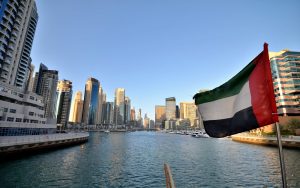
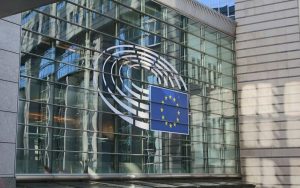

Be First to Comment